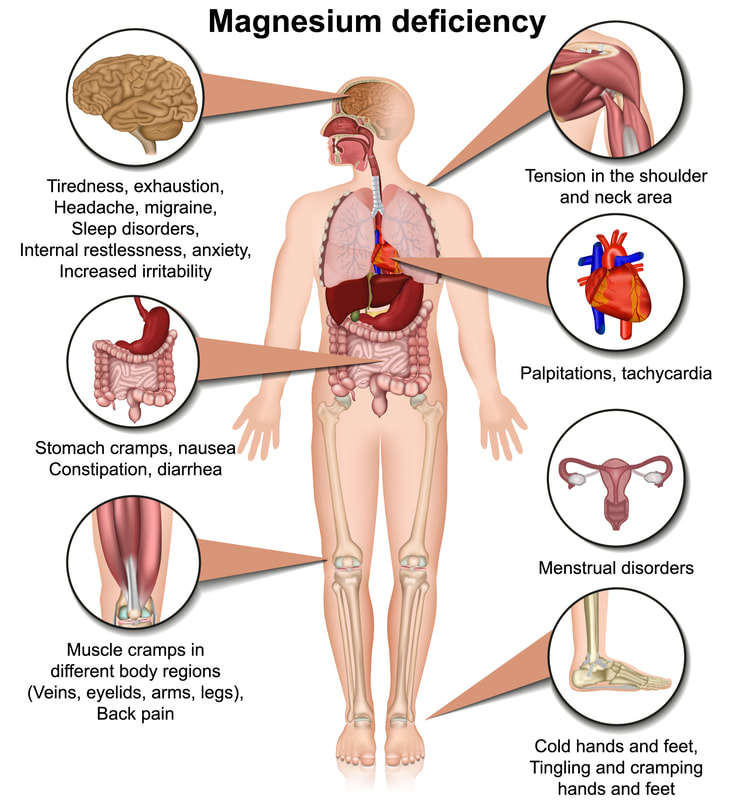 Magnesium is an important mineral that we get from the diet and is found in a diverse array of whole foods. It is a hot nutrient topic right now and for good reason. Although commonly seen in hospitalized patients, the general "healthy" population is now estimated to have a high level of deficiency that is going unchecked. This is concerning as magnesium supports many pathways and functions in the body including but not limited to: bone support, hormone functioning, blood clotting, and DNA replication (1). A deficiency could contribute to, or worsen, chronic conditions, as well as promote new health concerns. As health care practitioners it is difficult to bring awareness to this need as the symptoms of deficiency are vague: fatigue, lethargy and muscle weakness; and can easily be mistaken for other issues (1). There are also challenges in the serum reference ranges for testing and it is difficult to detect reductions of the magnesium in tissues, so baseline for supplementation can be challenging (1). The standard RDA (recommended dietary allowance) for adults is variable and depends on age and biological indicators. In general the recommendations are around 400 mg/ day which is the typical dose available in over the counter supplements (1). The good news is that magnesium is found in many foods and eating a whole foods based diet with a variety of items is a good way to meet your needs without the need for supplementation. It is important to note that food processing does diminish the magnesium content of many food items so choosing organic whole foods (if possible) is the best way to ensure you meet your needs. If you feel supplementation is still the best choice for you, talk to your provider to make sure there are no health reasons that you should not supplement. If you do choose to supplement be sure to purchase a quality product to ensure the best absorption, with nutrients and supplements quality really does make a difference. Magnesium Food List from the NIH Data Base
References
1. Gropper, S., & Smith, J. (2017). Advanced nutrition and human metabolism (7th ed.). Belmont, CA: Wadsworth Publishing/Cengage Learning. 2. National Institutes of Health Office of Dietary Supplements. Magnesium Fact Sheet for Health Professionals Accessed 05/06/2021.
0 Comments
Your comment will be posted after it is approved.
Leave a Reply. |
Details
Archives
June 2024
Categories |
|
Jessica Carter MS, RD, LD, CDE, RYT200 1900 Division ST W, Unit 4, Bemidji 218-556-9089 |
|
Copyright © Core Health & Nutrition, LLC.


 RSS Feed
RSS Feed

